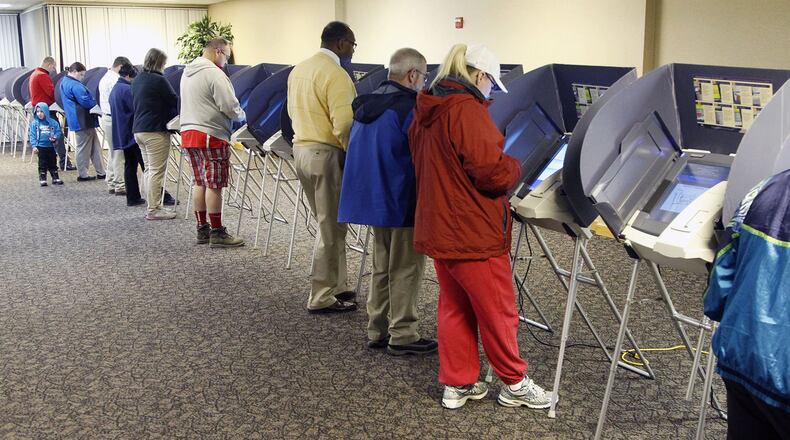“This levee helps so many of our most vulnerable citizens,” said Montgomery County Commission President Judy Dodge. “This is not a handout, it’s a hand up.”
The resolution before commissioners today calls for the renewal of the 8.21 portion called Levy A. It would cost homeowners of a $100,000 home $211.68 a year, according to the Montgomery County Auditor’s Office.
The proposed rate remains unchanged given the financial uncertainty of the coronavirus pandemic coupled with the county’s increase property valuations last year, said Tom Kelley, Montgomery County’s assistant county administrator for Human Services.
“We didn’t want to create any additional concern in the community, and felt the most prudent thing for right now was to renew this levy and not increase taxes,” Kelley said.
During the mid-1990s, the county combined six levies into two called Levy A and Levy B. The two are each eight-year levies but staggered to expire four years apart. No Human Services Levy has failed at the ballot box since the multiple levies were merged, according to the county.
The Nov. 2 election is the first opportunity for commissioners to place Levy A on the ballot. Should it fail in November, commissioners would have multiple other options for the ballot before the levy expires at the end of 2022.
The Human Services Levy provides local funding for the broad range of community programs that touch everyone’s life, Kelley said.
The levy primarily funds the work of county agencies such as Alcohol, Drug Addiction and Mental Health Services (ADAMHS), Children Services, Developmental Disabilities Services, Public Health-Dayton & Montgomery County and the Area Agency on Aging. Funding also provides health care for uninsured individuals and social services delivered by non-profit agencies for preschool and to combat homelessness.
Aside from providing direct services to more than 50,000 county citizens, every county resident benefits from services provided by Public Health – Dayton & Montgomery County, whether through immunizations, restaurant inspections, or air and water quality testing, Kelley said.
“Virtually everyone is impacted somehow by human services in the county,” he said.
Direct services are spread more widely across the county than commonly believed, Kelley said. Residents primarily in Dayton, which has about 26% of the county’s population, receive about 43% of direct services with the other 57% of direct assistance going to citizens in more suburban and rural areas throughout the county.
Levy B, the 6.03 mills portion that collects nearly $54 million annually, last passed in 2017 with the support of about three of every four voters. Together the Human Services Levy funding would total about $127.1 million in 2023, according to the auditor’s office.
Unlike many communities, a combined source for local human services allows Montgomery County to readily match government funding to secure state and federal assistance and quickly shift funds to where they are needed most, Kelley said.
“Even for the last couple of years, whether it’s been the tornadoes or the pandemic, because of the way our levee operates it’s able to respond to whatever the community needs looks like,” Kelley said. “Child welfare needs are higher right now than they have been in the last few years. And we’re also preparing for what those are going to look like as more kids are seen by mandated reporters as they go back to school.”
About the Author

